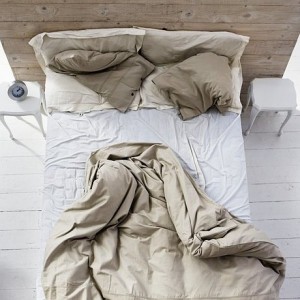 I had a boss one time who felt that his desk should be cleaned off at the end of each day. The only problem was “cleaned off” for him meant shoving everything into a catch-all drawer. He often forgot where he had “filed” things.
I had a boss one time who felt that his desk should be cleaned off at the end of each day. The only problem was “cleaned off” for him meant shoving everything into a catch-all drawer. He often forgot where he had “filed” things.
Most days either my wife or I will make the bed, but some days the bed goes unmade. Is that a sign of laziness?
Do productive people end each day with a clean desk? Do they always make the bed?
I tend to work with Type “A” leaders who treat productivity as a daily box to be checked. The truth is when it comes to being productive there are no boxes just different personalities and schedules.
Now or later
My wife and I run the kitchen differently. If I’m the head chef for the night, then I like to clean the pots as I finish using them. When she’s the head chef, she prefers to set the pots aside and finish cooking. Once the meal is over she gets busy with clean up.
In the kitchen, my wife’s approach to productivity is cook now, clean later. I prefer to cook now and clean now.
In our younger days we had many an argument over which approach was the most productive. The truth is both approaches are productive. They’re the same dish with different flavors. Today we wisely defer to the personality of that evenings “head chef.”
Simultaneous or Sequential
I was surprised to read a LinkdedIn admission from the very busy Chief Economic Advisor of Allianz that he binge watches Downton Abbey on Netflix.
In the not so distant past having a favorite show was impossible for highly productive individuals because you had to tune-in at “the same bat-time, same bat-channel.”
The shift to consumer-controlled technology, such as DVR and Netflix, has allowed productive people to become leisure managers and not just leisure abstainers.
As managers people can choose simultaneous or sequential “doses” of leisure that fit their schedule. They can binge watch Downton Abbey on their day off (simultaneous) or watch a single episode as time allows (sequential). Either way they get the productivity bonus of commercial-free viewing.
I have found that productivity is not a by-product of your personality or schedule, rather it is the outgrowth of a simple practice: Don’t work around your work.
Once the papers on your desk need to be moved in order to find a place to set your laptop, or when you can’t fold laundry on your bed because it’s a mess, then your working around your work.
The solution to prevent working around your work is simple: determine a regular interval for organizing your work that fits your personality and schedule. Whether that interval is daily or weekly doesn’t matter, so long as it keeps you organized enough to prevent you from working around your work.







